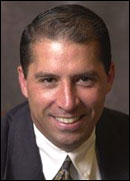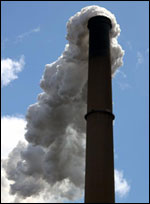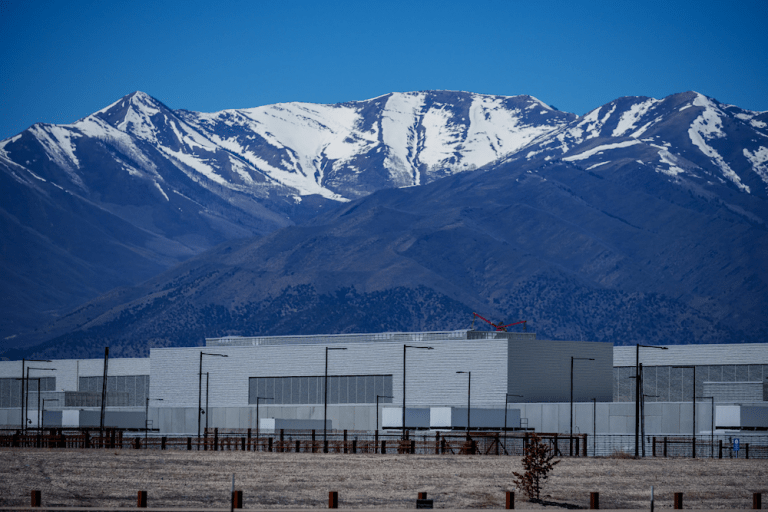It scarcely raises an eyebrow nowadays when the Bush administration’s environmental record is characterized, yet again, as a relentless attack on decades of protections for air, water, and wildlife. But the latest such charges come from a loyal soldier of the GOP, appointed by the Bushies to head up the enforcement office of the U.S. EPA, so they carry more weight than most.

Suarez: Not a happy camper at the EPA.
Bush officials waged “an unforgiving assault” on the EPA’s enforcement program, J. P. Suarez was quoted as saying in the October issue of The Environmental Law Reporter, in an article by Joel Mintz entitled “‘Treading Water’: A Preliminary Assessment of EPA Enforcement During the Bush II Administration” [PDF]. Suarez served as EPA’s enforcement chief from July 2002 until his resignation in January of this year, during which time he bore the brunt of the fierce internal battle at EPA over changes to new-source review (NSR) regulations under the Clean Air Act. He left after carrying out the notorious decision by the Bush administration to yank lawsuits against dozens of coal-burning utilities for dirty-air infringements that had been in the pipeline for prosecution since the Clinton era.
Suarez slipped out quietly to take a job as general counsel at Sam’s Club, a subsidiary of Wal-Mart (a company whose reputation on the environment is about as respected as Bush’s). Enviros weren’t sad to see Suarez go. At the time of his departure, Muckraker described him as “a Whitman-appointed Republican loyalist” who “had voiced no objections to the toothless EPA enforcement system.”
Only now has Suarez confessed, in full color, just how humiliating his struggle was as head of enforcement at EPA. “I got tired of going at it on every front, internal and external,” he told Mintz. “You know you find the daggers are drawn at every turn. It becomes very difficult when you feel that the people who are your colleagues do not believe in you or your mission.”
He’s not the only one who grew weary of dodging daggers: “Four senior executives of enforcement [at EPA] have left since the Bush administration took office — that says a lot on its own,” said Sylvia Lowrance, an agency employee for more than 20 years who served as EPA’s enforcement chief before Suarez. She also retired quietly, in July 2002, but has since voiced serious misgivings about the state of the enforcement program. “But [of those four], Suarez was the only Bush appointee, and it really speaks loudly when a Republican not only leaves his post but has the chutzpah to air his concerns publicly, corroborating everything that the career employees have said about the flaws in the system.”

Puffing with impunity.
Corroborate he did — and then some. Though Suarez has declined to speak to the press since the ELR article came out, his quotes in the article speak volumes. “[W]e were so inflamed, and overheated about the reform, we ended up with a reform package that doesn’t pass the laugh test,” he said. He confirmed what environmentalists have long charged — that the NSR changes were designed to relieve polluters from costly lawsuits. “It … became clear to me, during my tenure at EPA, that the goal of NSR reform was to prevent any enforcement case from going forward,” he said.
Suarez’s frank comments could be used to bolster lawsuits that New Jersey, New York, and other Northeastern states have brought against the administration to block the NSR changes.
EPA spokespeople did not return Muckraker’s request for comment on the Suarez matter, but pointed to a Sept. 30 statement that reads, “We vigorously enforce the Clean Air Act” and “We will continue to pursue existing NSR enforcement cases [against coal-fired power plants], and we will bring new cases.” (Of course, that statement came in response to a report [PDF] from the EPA’s inspector general charging that “the NSR rule change has seriously hampered EPA settlement activities, existing enforcement cases, and the development of future cases.”)
Environmentalists counter that the Bush administration has only brought a single new NSR case against a coal-fired power plant during its entire term, compared with nine cases brought during the Clinton administration, involving 51 separate coal-fired plants. Moreover, only four power-plant lawsuits have been settled under Bush, all of which were cases or investigations that began under Clinton.
In fact, enforcement overall has taken a major hit during the Bush II years. In mid-October, the Environmental Integrity Project released an analysis revealing that the number of civil lawsuits filed against polluters by the EPA during the first three years of the Bush administration plunged 75 percent compared to the last three years of the Clinton administration, “thanks to White House decisions to rewrite environmental rules and put the brakes on enforcement actions.”
But that’s a trend that could easily be reversed under a new administration, unlike many other controversial Bush environmental rollbacks, said EIP Director Eric Schaeffer, another former EPA official who quit his post in 2002 to protest enforcement failings under Bush. “It’s not like changing a law, which in many cases is very hard to go back and restore,” he explained. “In the event that there is a change of administrations, all Kerry will have to do is give the enforcement office back its reins to start prosecuting again. This is going to be one of those early decisions that [if Kerry is elected] he’ll need to make in the first week in office.”


